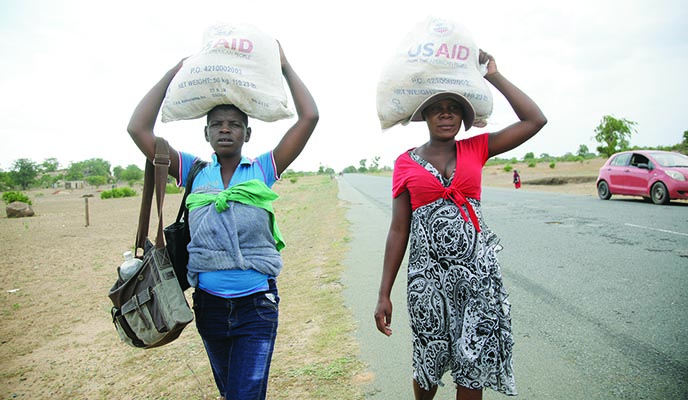
President Robert Mugabe has belatedly, but expectedly declared this agricultural season a national disaster and hopefully this means the government will start making efforts to ensure that no one succumbs to the famine.
Zimbabwe has not been in the throes of such a drought for about a generation and our disaster preparedness should be at its best if we are to survive this famine in one piece.
The government should now prioritise moving grain to the most vulnerable areas such as Matabeleland South, Masvingo, Midlands and parts of Manicaland, who are the hardest hit by food shortages.
It also has to be pointed out that the disaster intervention is a national cause and there should be no place for political vultures to use food aid for partisan purposes.
There are already ructions that some in the ruling Zanu PF are of the mistaken belief that the food aid is for their supporters only, and if we were to allow this attitude to prevail, it will only end in tragedy.
The fact that Mugabe has declared this agricultural season a disaster means that every needy person, regardless of political affiliation, religion or tribe, should benefit from the disaster mitigation efforts.
We pray that like in the last elections, where Mugabe campaigned for peace and denounced violence, he will also censure his supporters and warn them against seeking cheap patronage by using food aid to force people into voting for them.
- Chamisa under fire over US$120K donation
- Mavhunga puts DeMbare into Chibuku quarterfinals
- Pension funds bet on Cabora Bassa oilfields
- Councils defy govt fire tender directive
Keep Reading
In the same vein, we laud the government for initiating schools feeding schemes, as children are the most vulnerable, particularly in the southern parts of the country. Going a step further, authorities should also invite out-of-school children to receive hot meals at the schools as an effort to avert the looming disaster.
A number of families are child-headed and some pupils are forced to drop out of school to fend for their siblings and in most cases, these are the most vulnerable people.
A schools feeding programme will also entice out-of-school children to return to school, as there is less risk of them attending classes while they are hungry, falling asleep and failing to catch up with the rest of their classmates. The sooner the government and development partners begin this effort, the better.
Also the fact that we once again have to rely on non-governmental organisations for food should be a national embarrassment. We cannot continue rhetorically praising the success of the land reform exercise when the new farmers cannot feed the nation.
We understand that this agricultural season was difficult due to the El Niño effect weather patterns, but age-old wisdom dictates that during the years of surplus we should be able to save food for lean seasons.
As long as our farmers are unable to save enough grain for lean years, then there is no way we can be praising the land reform programme.












